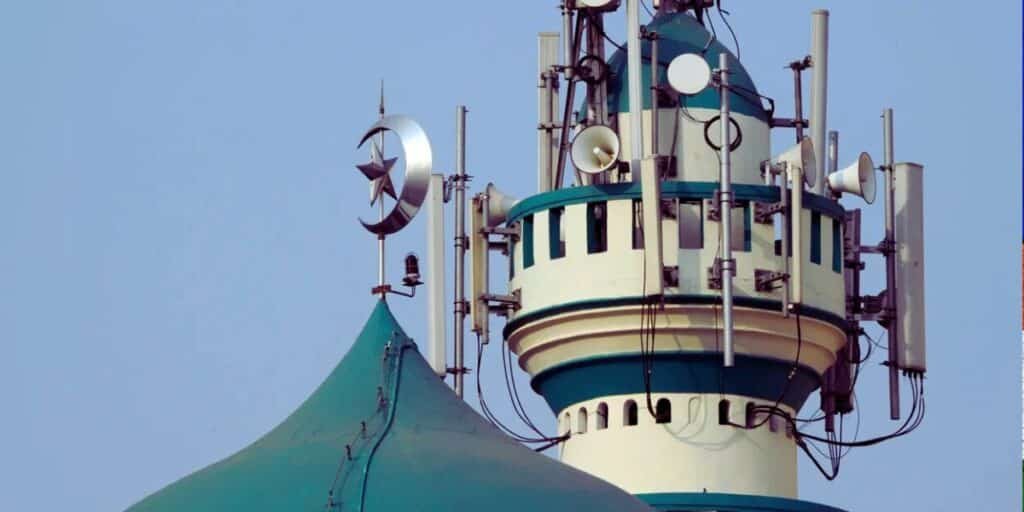WEBDESK: A new controversy has erupted in India as Azaan banned on loudspeakers in Mumbai’s mosques under the BJP government led by Prime Minister Narendra Modi.
The incident took place in Mumbai, Maharashtra, this week, and involved Muslim worshippers, police officials, and the city’s religious institutions.
According to reports, Mumbai Police have claimed that the city is now “completely free of loudspeakers.”
Police Commissioner Vivek Phansalkar stated that public address systems have been removed from all religious places, and Mumbai has now been made “noise-free.”
The reason given is noise control, but Muslims say it is a serious attack on their religious freedom, as they are now forced to use an ‘online Azaan’ app.
This move has caused anger and sadness among the Muslim community. Many are now using a mobile app to get Azaan and prayer timings.
The app, created by a company in Tamil Nadu, has become popular in many mosques and homes in Mumbai since the ban.
The app sends alerts for the five daily prayers, gives prayer timings, and plays the Azaan directly on mobile phones.
Muslims say this ban goes against their constitutional right to religious freedom. They also say this is not the first time the Modi government has targeted their faith.
In the past, the BJP has taken action against hijab, religious schools (madrasas), animal sacrifice during Eid, and even mosques. Now, they say, Azaan itself is under threat.
Religious leaders and Muslim citizens have expressed their frustration on social media. Many called it a sign of “hidden hate” and said it stains the image of a secular India.
They asked why only mosques are being targeted when loudspeakers are still used in temples and other places during celebrations.
This, they argue, clearly shows discrimination and bias.
Some observers believe this issue may also reach international human rights forums.
The United Nations, Human Rights Watch, and Amnesty International have previously raised concerns about the treatment of religious minorities in India.
Commentators are now asking whether this is part of a larger effort to silence Muslim identity in India. Azaan, which has been the traditional call to prayer for centuries, is now being replaced by a mobile notification.
Read more: BJP’s culture of cruelty: Muslim labourer woman, son beaten in UP






